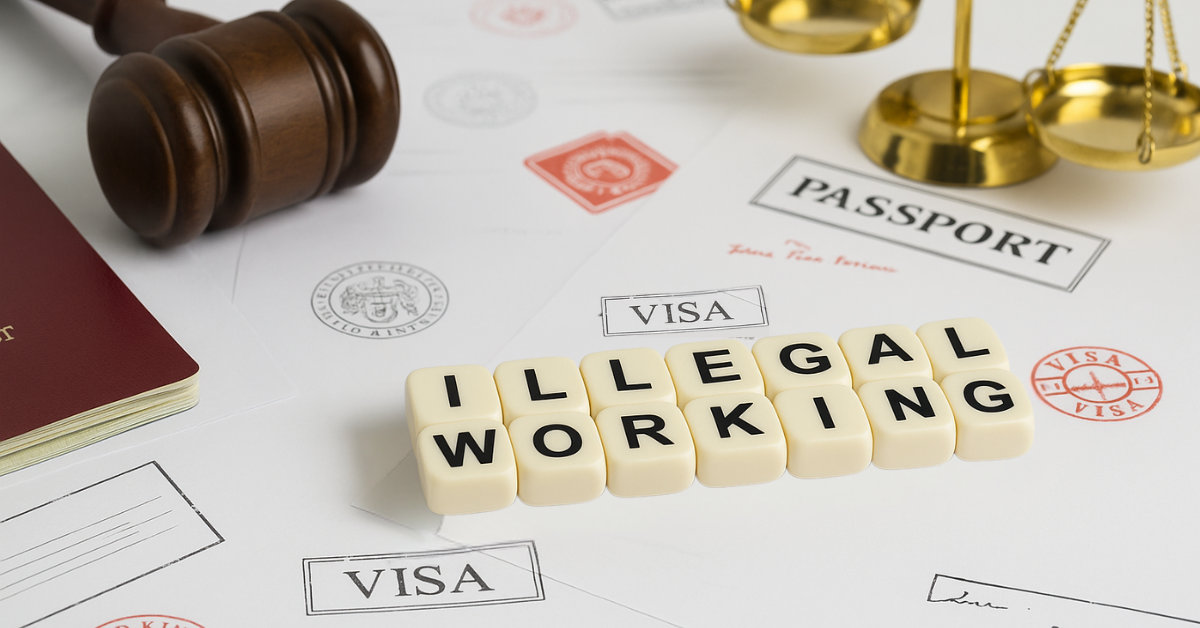
Good character requirement for naturalisation 2023
The majority of people applying for British citizenship will be required to meet the ‘good character requirement’, failure to do so may result in refusal.

Nikita Swift
What is the good character requirement and who must satisfy it?
When applying for British citizenship or naturalisation, individuals aged 10 years old or over are required to satisfy the good character requirement in line with the British Nationality Act 1981. If an individual applies for British citizenship or naturalisation without meeting the British citizenship good character requirement, then their application may be refused.
What does good character mean for British citizenship?
The British Nationality Act 1981 does not provide a definition of ‘good character’ and instead each application is considered on a case-by-case basis. To help with the assessment, UKVI have provided guidance which sets out the types of conduct associated with ‘good’ and ‘bad’ character. As an example, if any of the following apply to an applicant, then it is likely that they will not satisfy the good character requirement:
-
Criminality;
-
International crimes, terrorism or activity considered not to be conducive to the public good (i.e., war crimes, crimes against humanity, genocide);
-
Poor financial soundness (i.e., not paying tax which they are liable for or a significant debt);
-
Notoriety;
-
Deception and dishonesty (i.e., being deliberately dishonest or deceptive in dealings with the UK government such as a false claim for benefits);
-
Immigration breaches (i.e., breach of immigration laws); and
-
Deprivation (i.e., if they have previously been deprived of citizenship).
It should be noted that this is not an exhaustive list and therefore other factors can be taken into account. It is therefore best to speak to an immigration lawyer for further advice if you are worried that you may not meet the good character requirement for any reason.
Can I get British citizenship if I have a criminal record?
If you have a criminal record your application for British citizenship won't necessarily be refused on the basis of not meeting the good character requirement. However, British citizenship applications are likely to be refused if an applicant:
-
Has a criminal conviction which falls within the sentence-based thresholds:
-
A custodial sentence of at least 4 years;
-
A custodial sentence of at least 12 months but less than 4 years unless a period of 15 years has passed since the end of the sentence;
-
A custodial sentence of less than 12 months unless a period 10 years has passed since the end of the sentence;
-
A non-custodial sentence or out-of-court disposal that is recorded on their criminal record which occurred in the 3 years prior to the date of the application.
-
-
Is a persistent offender (a repeat offender who shows a pattern of offending);
-
Has committed an offence which has caused serious harm (e.g., one or more violent, drug, sex offences or hate crimes);
-
Has committed a sexual offence or their details are recorded by the police on a register.
An example of the good character requirement and having a criminal record
Romeo wishes to apply to naturalise as a British citizen but is concerned about not being able to meet the good character requirement due to his criminal history. Back in 2003, Romeo was convicted of assault and was sentenced to 3 years in prison. Despite this criminal record Romeo will qualify for British citizenship because more than 15 years have passed since the end of his sentence.
Can I apply for British citizenship if I overstayed?
Where an individual has committed immigration breaches such as overstaying or illegal entry, the Home Office has the power of discretion and may disregard such activities during the 10-year period prior to the application but this is only where the following apply:
-
The individual is applying for naturalisation as a British citizen or registration as a British citizen under s.4(2), 6(1) or 6(2) of the British Nationality Act 1981 after 28 June 2022;
-
The individual holds indefinite leave to enter or remain (settlement) in the UK; and
-
No concerns have arisen since the grant of settlement.
Although the Home Office has discretion to disregard certain immigration breaches, an individual may wish to wait until 10 years have passed before submitting an application for British citizenship in order to reduce the risk of a refusal.
Want to know more about applying for British citizenship?
Perhaps you have a question regarding the good character requirement for British citizenship, or perhaps you have a question about British citizenship more generally. Whatever, the need, why not get in touch with us today and claim your free* consultation with an expert immigration lawyer?
* Our free consultation last up to 15 minutes and are intended to provide an initial assessment of your enquiry and determine how we can assist. Where appropriate, we may also respond to your enquiry by email. However, if your enquiry is complex or requires detailed advice, we may recommend a paid initial consultation for a more in-depth discussion or case review. A consultation fee may apply for complex cases.
Does debt affect a citizenship application in the UK?
A British citizenship application will not usually be refused on the grounds of the good character requirement simply because an individual is in debt (especially where loan repayments are made as agreed or acceptable effort has been made to pay off debt). However, where an individual has deliberately and recklessly built-up debt and there is no evidence of intention to repay those debts, the application will likely be refused.
Additionally, a person is likely to fail the good character requirement if they are in debt to the NHS. For instance, if a foreign national has an NHS debt of more than £500,000 then their naturalisation application will likely be refused.
If I do not meet the good character requirement, could my application still be successful?
In some exceptional cases, applications that would normally be refused may be granted where there are mitigating circumstances that make it appropriate for the application to be granted. Examples of this can include:
-
Where an individual’s criminal conviction is for an offence not recognised in the UK or there is no comparable offence (i.e., homosexuality);
-
Where an individual has one single non-custodial sentence which occurred within the first 2 years of the preceding 3 (meaning they have had no offences in the last 12 months)), and there are strong factors which suggest the person is of good character in all other regards so the decision to refuse would be disproportionate; or
-
The first 2 years of the preceding 3 (such as the person has had no offences within the last 12 months), and there are strong factors which suggest the person is of good character in all other regards so the decision to refuse would be disproportionate.
This is not an exhaustive list and therefore other factors can be taken into account. It is therefore best to speak to an immigration lawyer for further advice if you are worried that you may not meet the good character requirement for any reason.
How Paragon Law can help?
At Paragon Law, our personal immigration lawyers have assisted many individuals to register and naturalise as a British citizen. As part of this process we can provide advice in relation to satisfying the good character requirement. If you require advice in relation to meeting the good character requirement, British citizenship, or another matter of UK immigration law then please get in touch.
Subscribe for updates

Life in the UK Test: British Citizenship and Settlement
Not ready to talk? Our free immigration resources may have the answer to your questions
%20Visa%20Update%20New%20Route%20for%20Adult%20Children.png)
Hong Kong BN(O) Visa Update: New Route for Adult Children
%20(1).png)
British Citizenship Application: Requirements & Process (2026)
.png)
A Fairer Pathway to Settlement: UK Earned Settlement Explained

UK ETA Enforcement from 25 February 2026: What Travellers Need to Know

Global Talent Visa: Eligibility, Requirements and Application Process

Border Security, Asylum and Immigration Act 2025 – What Employers Need to Know
.png)
UK Immigration Rule Changes 2025: Visa and Settlement Reforms Explained
%20What%20Sponsors%20Need%20to%20Know%20(1).png)
Upcoming Increase to the Immigration Skills Charge (ISC): What Sponsors Need to Know




